The Echo and Reflexivity in ‘Double Echoing’
The 13th Gwangju Biennale Pavilion Project
Taiwan C-LAB
by C-LAB
Double Echoing centres around Taiwan and South Korea: two East Asian democracies confronted by common political and economic realities that have evolved through their modern history. Both countries have suffered the cruelty of the Second World War and the Korean War, colonisation, displacement, and repression since the late nineteenth century. Their anti-communist orientation and the promise of democratisation increase this sense of mirrored destinies.
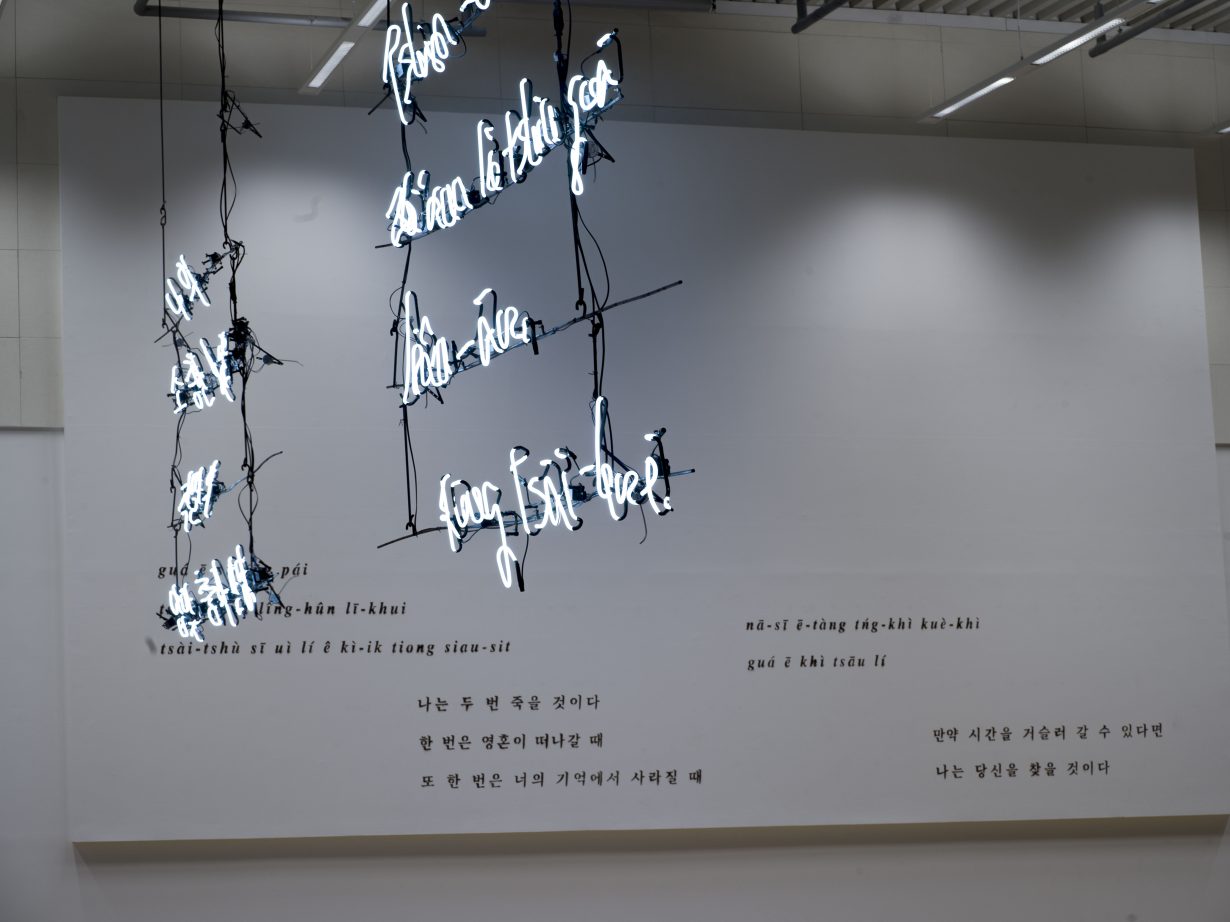
Drawing on that shared experience, Double Echoing attempts to transcend the confines of political definitions concerning ‘state’, ‘border’, ‘race’ and ‘history’ through artistic approaches, as a means of reflecting on the subtle yet ubiquitous deployment of power in each country and to rediscover spiritual meaning across the region. Invited by the Taiwan Contemporary Culture Lab (C-LAB), 14 artists critically reflect on their life experiences, guiding the viewers through an exploration of the social boundaries drawn by body politics and collective consciousness.
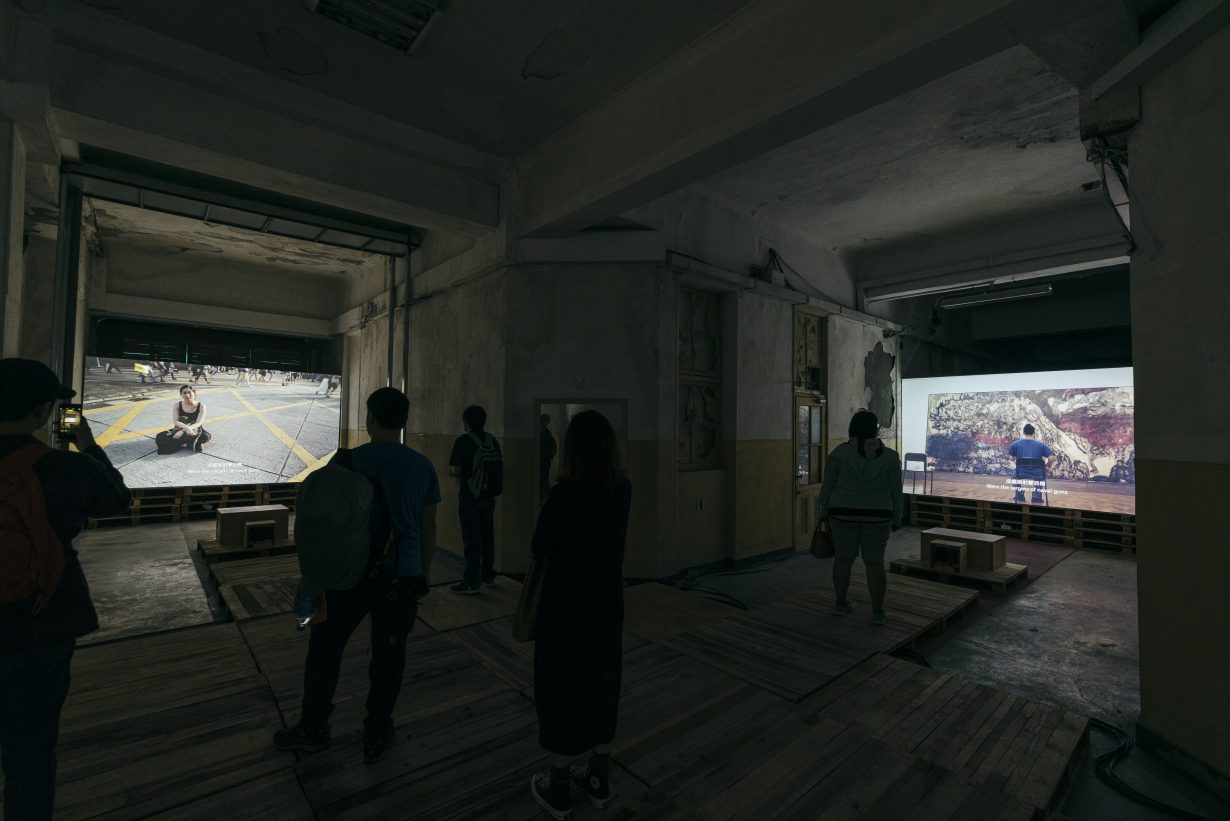
Double Echoing invites viewers to embark on an introspective journey. It offers a multi-level immersive experience by creating echoes and reverberations within the themes of ‘body/narrative’, ‘language/consciousness’ and ‘ballad/lyrics’ across various spatiotemporal contexts. The exhibits encourage reflection on state violence, Taiwan’s White Terror and historical tragedy, whether through decolonising and disenchanting the past by revisiting its sites, detailing the state’s restrictions on citizen’s behaviour and speech, or switching the focus to demonstrations of the people’s indomitable spirit. The exhibition aims to heighten visitors’ consciousness by creating a thought-provoking space: the participating artists’ approaches to historical narratives echo within our own thoughts, encouraging reflexive readings of our own shared past.
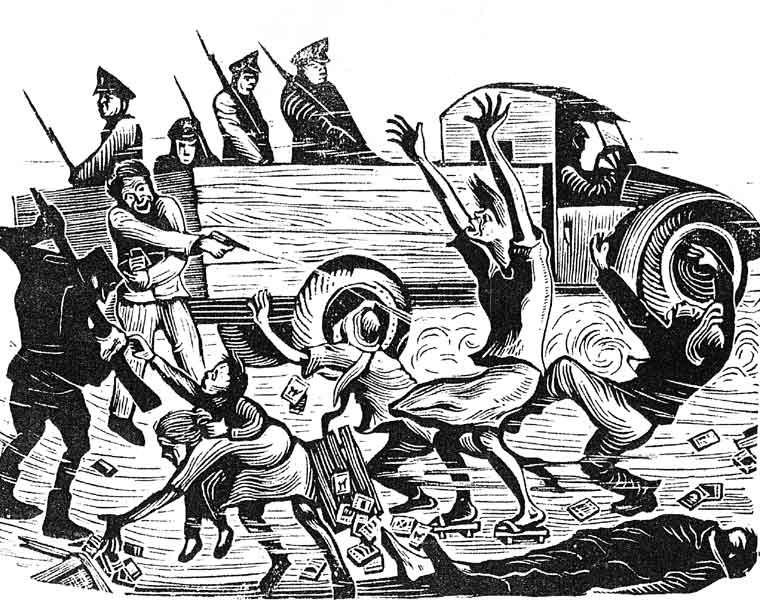
Recognised as a powerful totem that bears testimony to Taiwan’s 228 Incident, The Terrible Inspection is a woodcut created by painter Huang Rung-Tsan after he experienced the traumatic incident in 1947. As a painter who suffered through war in China and then migrated from Sichuan province to Taiwan, Huang eventually became a victim of East Asian anti-communist politics during the Cold War. In 1952, he was framed and arrested, and finally executed by shooting at Machangding. It was not until 1993 that his gravestone was found in the Liuzhangli mass grave. Although this artwork has often been displayed anonymously over the decades, the humanitarian spirit embodied in it has galvanised countless people to continue fighting for human rights and freedom. The woodcut offers a point of departure for the dialogue within Double Echoing and will be on view at the Asia Culture Center, a venue of the Gwangju Biennale.
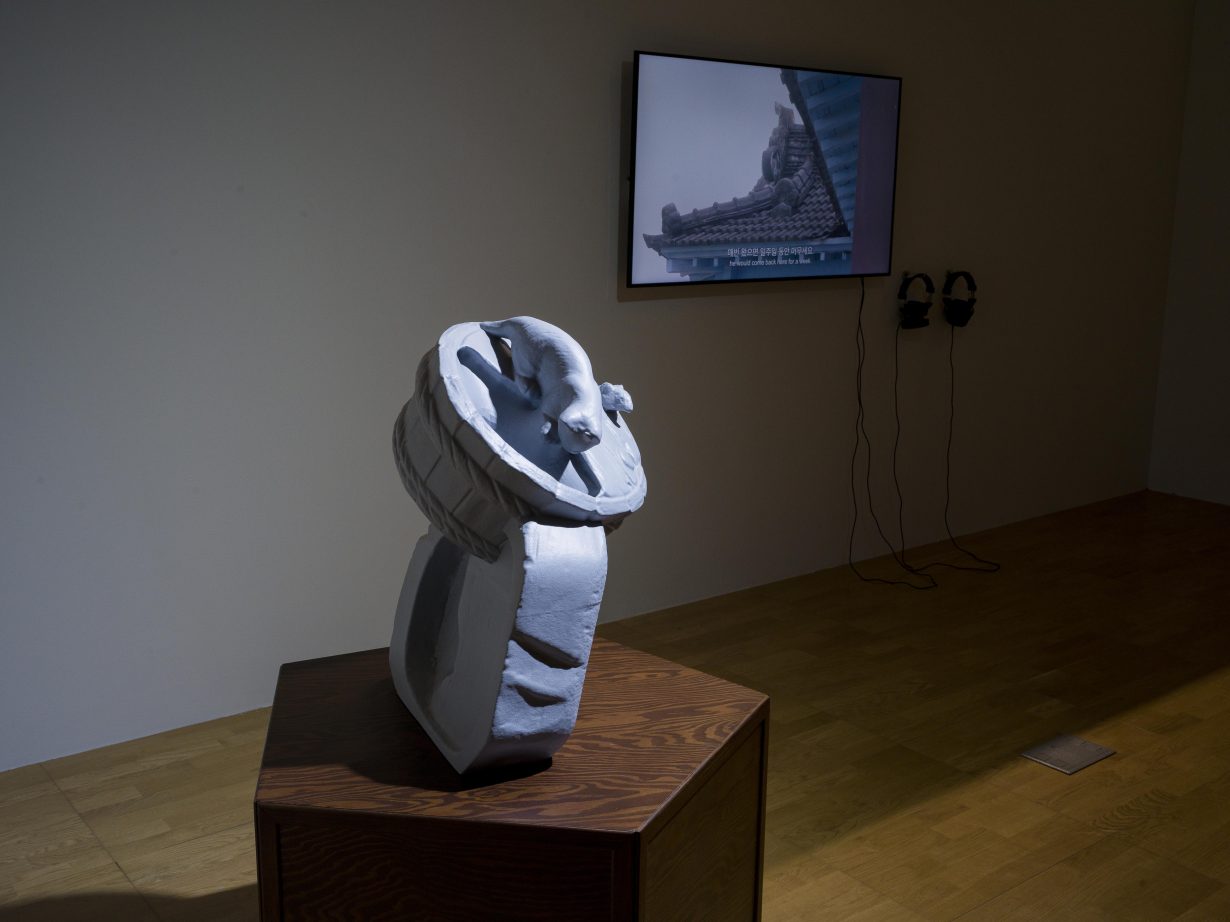
Human rights and transitional justice have long been a great concern of the C-LAB and the National Human Rights Museum, in solidarity with the guiding philosophy behind the Gwangju Biennale – the pursuit of universal human rights. Accordingly, by means of cross-institutional collaboration, the C-LAB re-commissioned 4 artworks from the Green Island Human Rights Art Festival for the exhibition, in the spirit of our shared values.
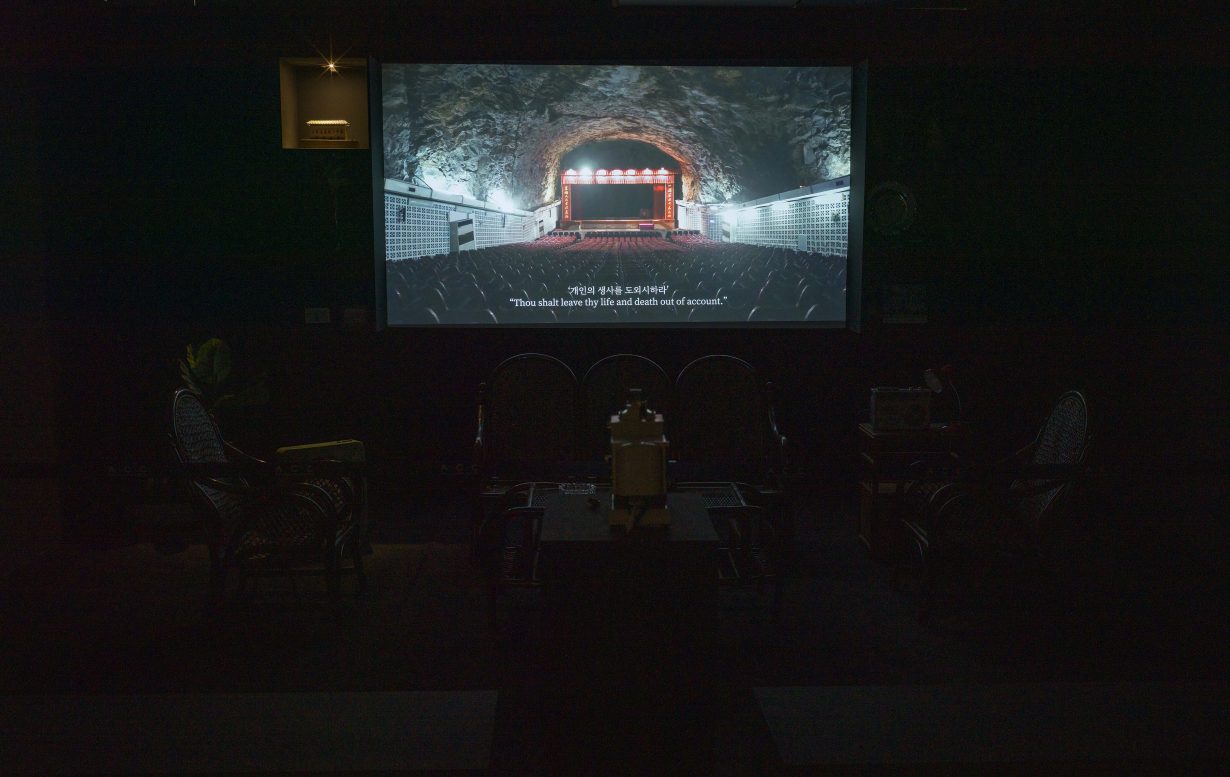
Following the fortieth anniversary of the Gwangju Uprising last year, we intend not only to heal historical wounds with art, but also to reexamine the legacies of the Second World War and the Cold War, with the aim of giving voice to previously suppressed marginal narratives through the power of advocacy. We invite our audience to pluck up the courage to understand each other, face our common past, envisage the future, and enjoy genuine freedom.
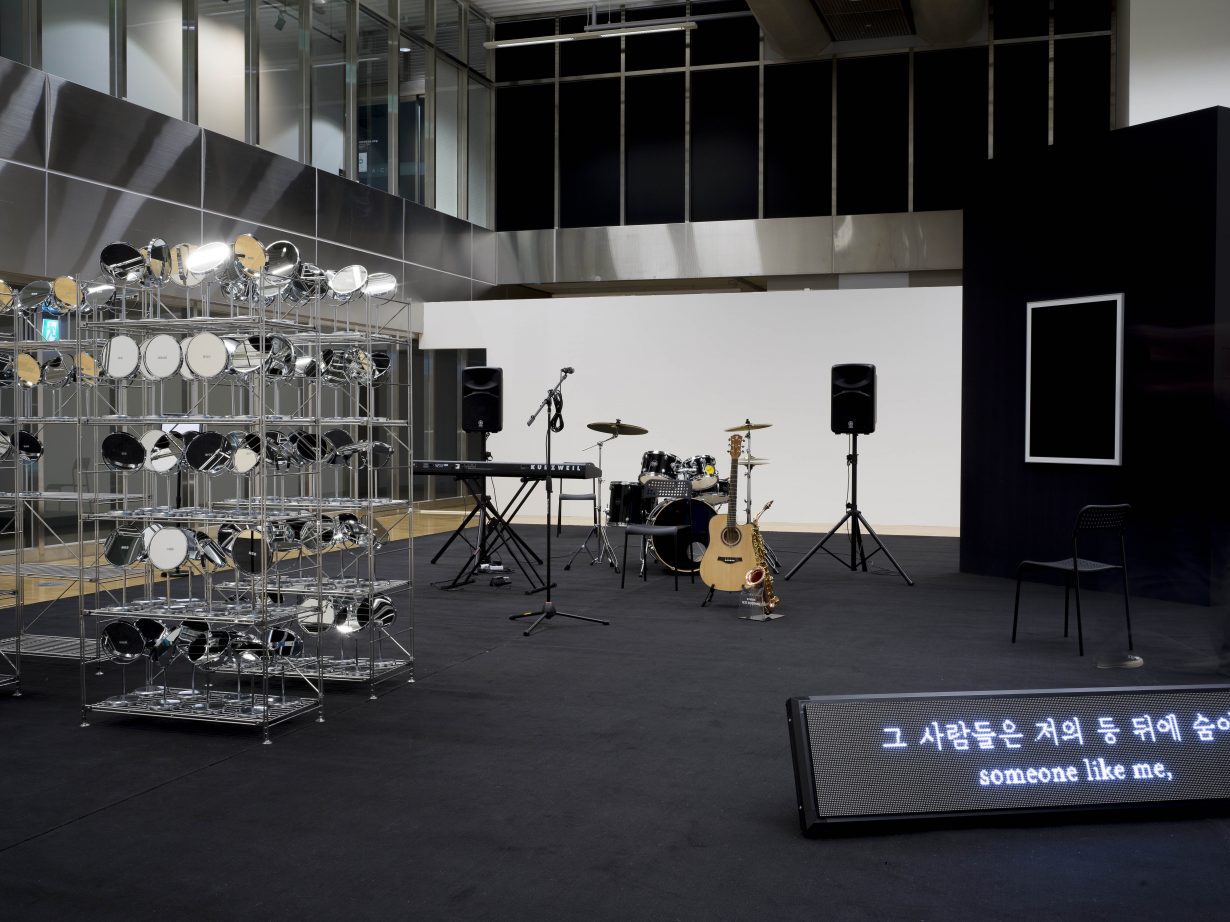
Date: 26 February – 9 May 2021
Venue: Gwangju Asia Culture Center Creation Space 5, Korea
Curator: Wu Dar-Kuen
Artists: Wang Ding-Yeh, Lin Yi-Chi, Chang Li-Ren & Cheng Yuan & Rui Lan-Xin, Yeondoo Jung, Val Lee, Hsu Chia-Wei, Teng Chao-Ming, The Libera Work-Gang (Lin Chung-Kai, Lin Tzu-Ning, Lee Jia-Hung, Hsin Pei-Yi, Hung Wei-Ling)
Host: Gwangju Metropolitan City, Gwangju Biennale Foundation
Organiser: Taiwan Contemporary Culture Lab (C-LAB)
Co-organiser: National Human Rights Museum, Taipei Performing Arts Center
Support: Asia Culture Center (ACC) and Asia Cultural Institute (ACI)
Supervisor: Ministry of Culture, Taiwan